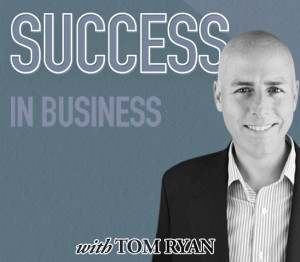 One of the best parts of my job is working with young entrepreneurs. I call them my “baby birds,” and there’s something incredibly rewarding about taking them under my wing. I love being in a position to guide them through the early stages of starting a company, acting as a mentor as they turn an idea into a full-fledged business. When those businesses finally take flight, it’s a huge thrill.
One of the best parts of my job is working with young entrepreneurs. I call them my “baby birds,” and there’s something incredibly rewarding about taking them under my wing. I love being in a position to guide them through the early stages of starting a company, acting as a mentor as they turn an idea into a full-fledged business. When those businesses finally take flight, it’s a huge thrill.
Creating a viable business means going into the process with your eyes wide open, and I always love it when those young entrepreneurs ask me those simple-yet-tough questions I really have to think about. For instance, I hear a lot of variations on this question: “What obstacles can I expect to run into as I start to turn my idea into a real business?”
Even the best-planned business can (and will) encounter bumps, detours and roadblocks. It’s part of the game, and finding solutions to those issues is part of the excitement and challenge of being an entrepreneur. Everyone’s experiences will be a little different.
One of the most common hurdles new businesses face is that their great idea just doesn’t connect with the market. The shorthand for this is “product/market fit,” and a bad fit is more common for early stage companies than you may realize. You might have correctly identified a need or pain point in the market, but your first attempt at providing a solution to it just doesn’t resonate with customers or investors.
This is one reason that the “minimum viable product” (MVP) approach (popularized by the book The Lean Startup by Eric Ries) has become a standard approach for startups. Instead of investing all of your resources creating a fully formed version of your initial idea, you only invest the minimal amount of resources needed to create a viable initial version of that product or service.
If it that initial version doesn’t connect with the market, or the business plan doesn’t fit the reality in the way you anticipated, you can quickly make big changes. This is called “pivoting,” and it’s another incredibly important tool to have in your toolbox as you develop your new enterprise. These changes might be something relatively minor, like a shift in focus from one group of consumers to another, or it might be substantial, like a massive change to the entire premise of the business itself.
As you get feedback from customers and investors, pivoting will allow you adapt. Ultimately, those adaptations and pivots will allow you to develop a much stronger business model. One excellent tool for creating a business model structure that is both easily updated and visually intuitive is the business model canvas.
Another obstacle you can also expect to encounter frequently is people simply not understanding what your business is, how it works, and who it exists for. If you have trouble explaining the basics of the business, you can expect to struggle in every meeting with a potential customer or possible investor.
Having a strong, clearly stated “power pitch” for your company will completely change the game.
This brings us to the final obstacle most young entrepreneurs encounter: Running out of money. Having a great idea is no guarantee that that the product will be successful. You might find that customers aren’t beating a path to your door, and that investors and lenders are skeptical. Demand might be lower than you expected, or costs higher. And, most importantly, you might be underestimating the importance of sales when it comes to building a strong foundation for sustainable growth. It helps to construct your business model with a profitable mindset, right from the start.
While it’s true that there are plenty of obstacles in the path of every new business, it’s also true that there are plenty of great resources out there to make things easier. That’s also why this website exists. If you have questions you would like to see answered as you grow your business, I’m happy to tackle them. You can leave me a voicemail at (801) 228-0663 or email me at SuccessInBusinessPodcast@gmail.com.
